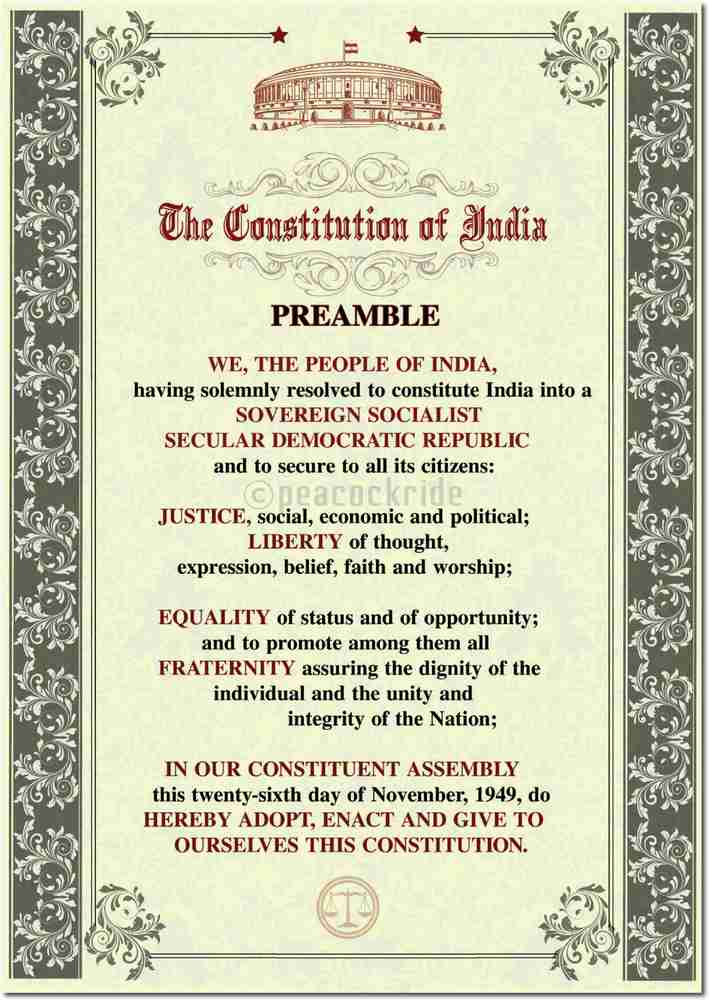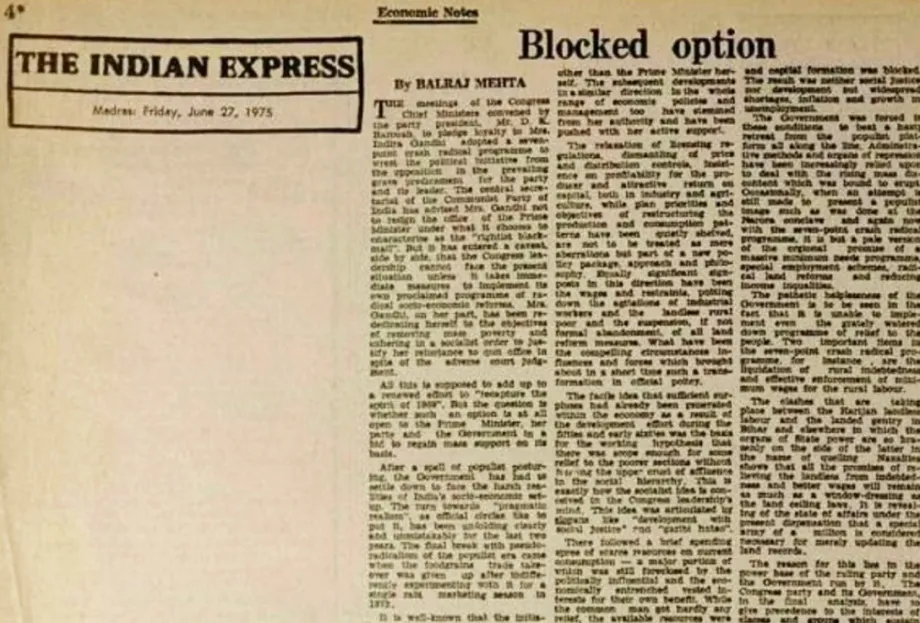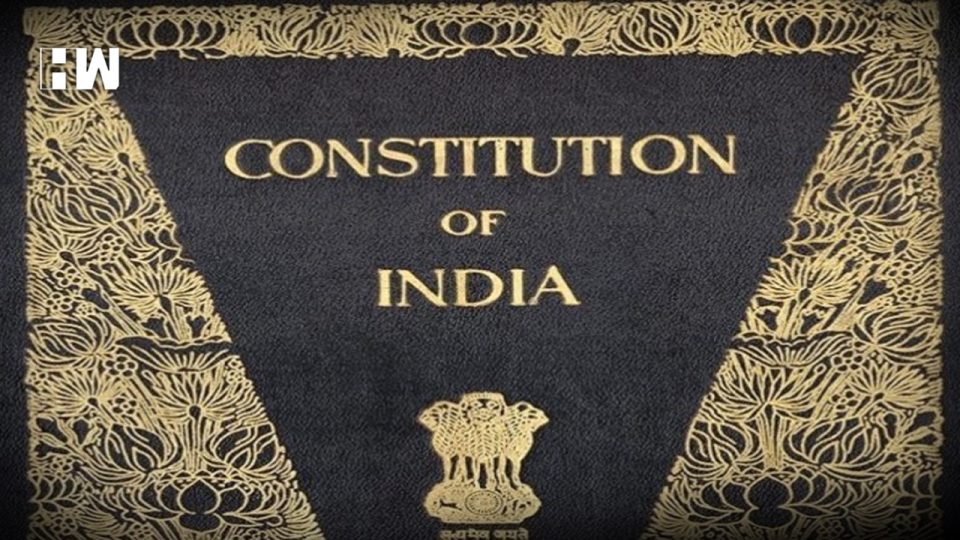25th June is observed as the “Samvidhaan Hatya Diwas.” It needs to be seen which regime chose to be more detrimental to our Constitution, which was painfully constituted by the likes of Jyotibha Phule, Lokmanya Tilak, and Dr. Babasaheb Ambedkar.
The idea of a constitution was envisaged in the battlefields of Bengal in 1857, amidst the Indian mutiny when the need for a governing document was felt in anticipation of a foreseeable self-rule movement for a nation. A nation that is of the people, by the people, and for the people. It was transposed through various leaders like Jyotiba Phule, Lokmanya Tilak and Babasaheb Ambedkar and finally culminated into a document on 9th Dec 1946, further ratified on 26th Nov 1949 and came into effect on 26th Jan 1950.
The Constitution, a roadmap for the governance of the federal republic, was designed to ensure order, justice, and the protection of individual rights. The President of India, the constitutional head, played a crucial and reassuring role in upholding the principles of the Constitution, ensuring the security and stability of the nation.
The preamble represents the principal objectives of the Indian Constitution, which are based on Justice, Liberty, Equality, and Fraternity. However, it underwent a significant amendment in 1975, when the words Socialist, Secular, and Integrity were added. Any amendment can be challenged in the Supreme Court. This powerful tool empowers citizens to protect their rights within the Constitution’s ambit, ensuring their active participation in the country’s governance.

Nani Palkhivala was quoted as saying that “the Constitution represents the charter of power granted by liberty and not a charter of liberty granted by power. Liberty is not a gift of the state to the people, but the citizens of a free republic that granted power to the legislature and the executive.”
The Constitution also includes a provision for declaring an emergency, a crucial tool for managing existing political turmoil and preventing its escalation. This provides an aegis against external aggression, internal rebellion, or financial crisis, particularly for a newly independent nation. The Central Government exercises broad powers that could go beyond its constitutional authority under such conditions.
National emergency provisions are contained in Part XVIII of the Constitution of India in Articles 352 to 360. The President, as the ultimate guardian of the nation’s stability, is entrusted with the solemn duty to proclaim an emergency, after which the law takes a stringent mode. The emergency needs to be reviewed every six months and can be continued only if the volatility is still not under control or duly subdued.
The first instance of the emergency was between 26th October and 21st November 1962, while the second was between 3rd and 17th December 1971; both situations were to control external aggression by China and Pakistan. These grave situations had the political consent of the opposition as well. However, the third was contrived by the PM, Mrs Indira Gandhi, and her council of ministers and executed in haste with intentions that belied her true self. This was made under controversial circumstances that reportedly had political provocations and lasted between 25th June 1975 and January 1977.
Arresting many opposition leaders became indispensable, and this was made known through the government mouthpiece. The editorial in one of the esteemed dailies carried a blank page throughout the period. The apparent misuse of emergency provisions, reported much later by the press, had a profound impact on democracy. Forced sterilisation was preeminent and the central issue, underscoring the need for the nation’s voice to be expressed via the ballot box and conveyed to the powers unequivocally. This was duly done on the resurrection of peace and calm. The outcome was untenable to the then-ruling government, which compelled them to indulge in damage control.

Unfortunately, history could never provide teaching from the lessons of the past. The current regime persists in its bid to resort to undeclared emergencies and is splintering the system in phases without the masses becoming aware of the damage being done; they are harming the Constitution by the misuse of emergency provisions that should ring alarm bells. This situation underscores the urgent need for public awareness and vigilance, as it is the only way to protect our constitutional democracy. Each one of us has a crucial role to play in this task, and the time to act is now. The puritanical functioning of democratic institutions is, by all means, a principled approach to a ruling dispensation.
Regrettably, lynching for food, parading naked, or any such gruesome activity carried out on men and women by unauthorized people or even authorized institutions is a severe breach of fundamental rights guaranteed by the Constitution. Police custody or judicial custody is permissible for only 15 days for interrogation, and the police are later entitled to frame charges against individuals. When no evidence (circumstantial or otherwise) could be established, the alleged convict has a right to be released immediately.
Jail instead of bail should not be the precedent for an alleged criminal act. When the freedom of individuals to love is denied for reasons of caste or religion, including a widely used phrase, love jihad, social counselling is to be provided to the erring males and females, guiding them on the futuristic trend of their careers instead of falsely implicating them with legal retribution. The use of political power to entrench institutions that do not come under the direct control of the government is unconstitutional and unwarranted.
The legislatures are empowered to bring amendments to the constitution, which could change the interpretation of laws, but only conditionally. Firstly, they are required to have a majority in favour of it, and this can be possible only without a whip to enable voting as per their conscience, or a landslide majority in both houses of Parliament, or by suspending opposition members through the speaker.
The last is very unparliamentary and unethical. It would be unwise for a 96.88-crore electorate to vote honestly and yet repeatedly choose a leader even when the government is perceived to be incapable, corrupt, and power-hungry, with an overwhelming desire for more. Meanwhile, mass participation in every activity is essential, as we have as much at stake as the politicians stand to gain.
Incidentally, the 25th of June is observed as the “Samvidhaan Hatya Diwas.” However, it needs to be seen which regime chose to be more detrimental to our Constitution, which was painfully constituted by the likes of Jyotibha Phule, Lokmanya Tilak, and Dr. Babasaheb Ambedkar.
The views expressed by the author are strictly personal.
As an independent media platform, we do not take advertisements from governments and corporate houses. It is you, our readers, who have supported us on our journey to do honest and unbiased journalism. Please contribute, so that we can continue to do the same in future.

